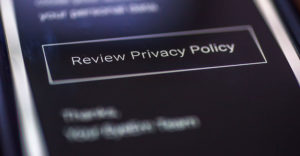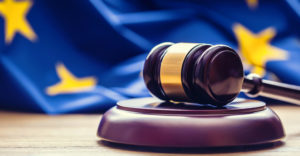
As testimony unfolds in the Oracle-Google lawsuit, now in its second week, it appears that Google’s defense against copyright infringement is vulnerable. That is not to say Google will not ultimately prevail in the end.
Oracle has alleged that Google’s Android OS infringes both Java patents and copyrights. So far, testimony has focused on the copyright issue.
Google’s defense against the copyright infringement allegations has some holes, according to Kevin C. Taylor, a partner at Schnader Harrison — which is especially evident following three days of testimony by Google’s Android chief, Andy Rubin.
The Partnership Problem
Google did not believe it needed a license from Sun Microsystems for its use of Java code, Rubin stoutly maintained.
However, Google did attempt to form a partnership with Sun Microsystems, he acknowledged. Under such a partnership, Google would have secured the right to use the Java platform.
That bit of testimony bolstered Oracle’s claims that Google deliberately lifted Java code from Sun when it couldn’t get an agreement, Taylor told the E-Commerce Times.
“Why would Google try to get the right to use Java — even if just through a partnership — if it felt it didn’t need a license?” he asked.
Damaging Email
There’s also the Google problematic email that Oracle introduced in the first week of the trial, noted Taylor.
The message, sent by employee Tim Lindholm to Rubin, referenced conversations Lindholm had with CEO Larry Page and Google cofounder Sergey Brin, in which they directed him to find alternatives to Java.
Lindholm concluded in the email that a license would be necessary if Java was to be used in Android.
Page testified he didn’t remember the email and wasn’t sure of Lindholm’s position in the firm, although he was aware he was employed at the company.
Google reportedly tried to keep the email out of the trial.
“The email is practically an admission that Google thought, at least at one point, that they needed a license from Sun,” Taylor said. “The fact that they went ahead and built Android without it smells like a violation.”
More Damaging Testimony
The testimony of Bob Lee, a former Android engineer, did not help Google’s cause either, said Casey Griffith, an attorney with Klemchuk Kubasta.
“The engineer admitted that during the course of development he told Android developers with Java experience that it was “okay to use what’s in your head,” but not okay to copy code,” Griffith told the E-Commerce Times.
“He also testified that he removed some Java technology from Android after Oracle filed its suit,” Griffith continued. “Oracle will undoubtedly use these admissions to help show that Google knew it was not authorized to use some Java technology that had been incorporated into its Android platform.”
Defining ‘Clean Room’
This testimony undermined Google’s position that because it used a so-called “clean room” to develop Android it cannot be accused of copyright violations, Taylor noted.
“You can’t call it a clean room — that is, clean of all existing knowledge of Java — if there is a Java person in the room,” he said.
How Google might hold up in its defense against the patent violation allegations remains to be seen. Oracle originally alleged that Google infringed seven Java-related patents. Google asked the U.S. Patent and Trademark Office to examine those patents, and five were ruled invalid.
A sixth was found to be valid — however, because the PTO delivered its ruling after the start of the trial on April 16, the judge decided it could not be included.
Google and Oracle did not respond to our requests to comment for this story.





















































Social Media
See all Social Media